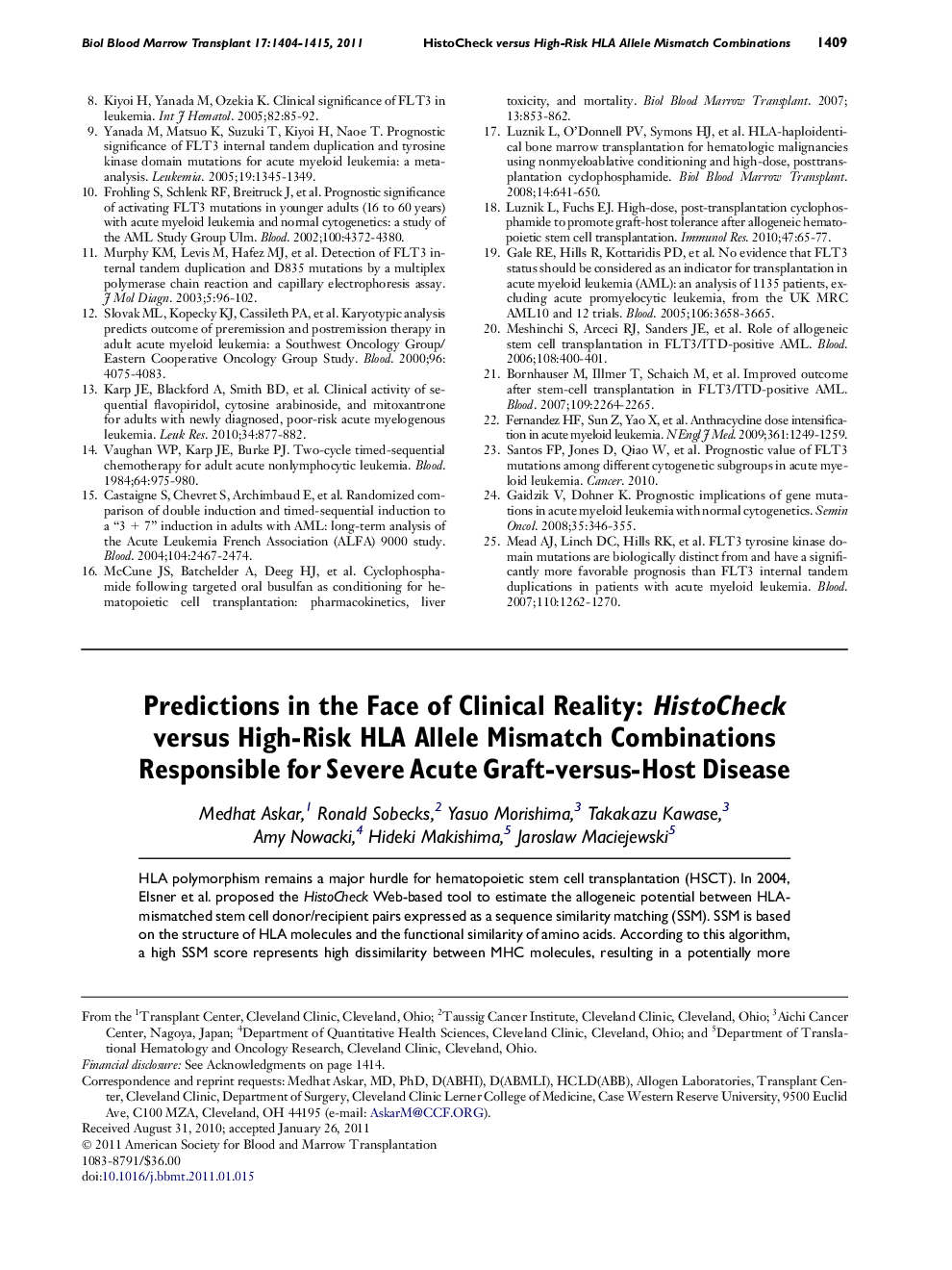| Article ID | Journal | Published Year | Pages | File Type |
|---|---|---|---|---|
| 2105507 | Biology of Blood and Marrow Transplantation | 2011 | 7 Pages |
HLA polymorphism remains a major hurdle for hematopoietic stem cell transplantation (HSCT). In 2004, Elsner et al. proposed the HistoCheck Web-based tool to estimate the allogeneic potential between HLA-mismatched stem cell donor/recipient pairs expressed as a sequence similarity matching (SSM). SSM is based on the structure of HLA molecules and the functional similarity of amino acids. According to this algorithm, a high SSM score represents high dissimilarity between MHC molecules, resulting in a potentially more deleterious impact on stem cell transplant outcomes. We investigated the potential of SSM to predict high-risk HLA allele mismatch combinations responsible for severe acute graft-versus-host disease (aGVHD grades III and IV) published by Kawase et al., by comparing SSM in low- and high-risk combinations. SSM was calculated for allele mismatch combinations using the HistoCheck tool available on the Web (www.histocheck.org). We compared ranges and means of SSM among high-risk (15 combinations observed in 722 donor/recipient pairs) versus low-risk allele combinations (94 combinations in 3490 pairs). Simulation scenarios were created where the recipient’s HLA allele was involved in multiple allele mismatch combinations with at least 1 high-risk and 1 low-risk mismatch combination. SSM values were then compared. The mean SSM for high- versus low-risk combinations were 2.39 and 2.90 at A, 1.06 and 2.53 at B, 16.60 and 14.99 at C, 4.02 and 3.81 at DRB1, and 7.47 and 6.94 at DPB1 loci, respectively. In simulation scenarios, no predictable SSM association with high- or low-risk combinations could be distinguished. No DQB1 combinations met the statistical criteria for our study. In conclusion, our analysis demonstrates that mean SSM scores were not significantly different, and SSM distributions were overlapping among high- and low-risk allele combinations within loci HLA-A, B, C, DRB1, and DPB1. This analysis does not support selecting donors for HSCT recipients based on low HistoCheck SSM scores.
